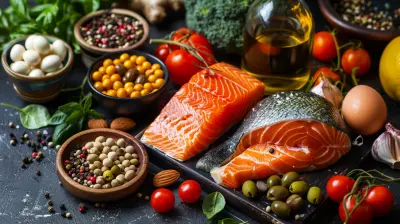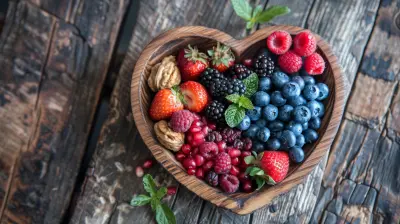The Power of Resveratrol Supplements in Anti-Aging
8 July 2025
Let’s talk about something nearly all of us think about but rarely speak of openly—aging.
We all know it's coming. The fine lines, the creaky joints, the feeling that you might need a nap after simply walking up a flight of stairs. Yep, aging is the ultimate leveler. But what if I told you that there’s a tiny compound—found in red wine, no less—that’s creating a lot of buzz in the world of longevity?
Say hello to resveratrol, the not-so-secret weapon in the battle against aging.
In this article, we're diving deep into the power of resveratrol supplements in anti-aging—what it is, how it works, and why you might want to consider adding it to your health regimen. And don't worry, we’ll keep things light, fun, and 100% jargon-free.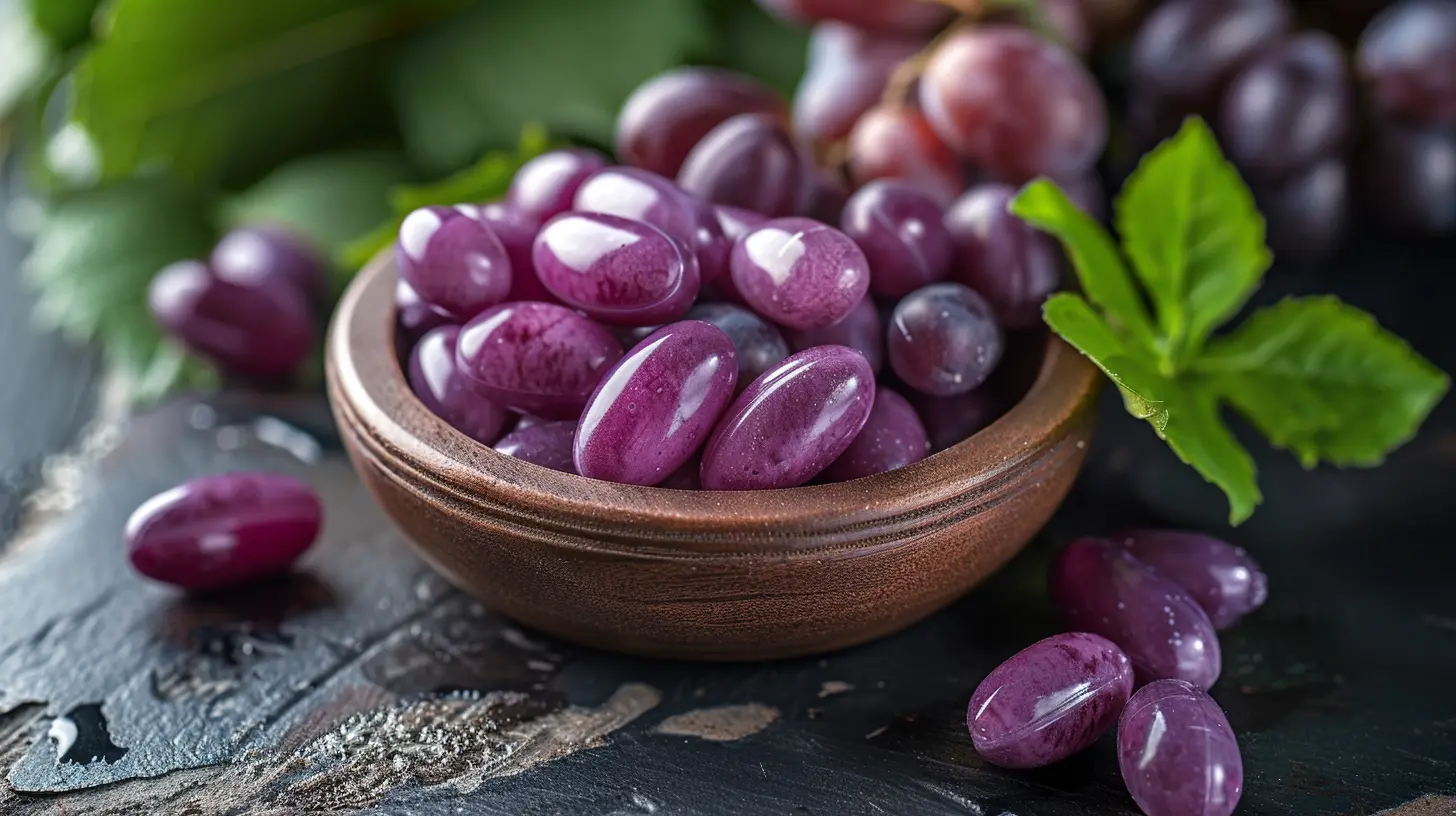
What The Heck Is Resveratrol, Anyway?
Picture this: You're enjoying a glass of red wine (🍷), maybe some grapes on the side, and you think to yourself, “This is living!” Well, guess what? One of the magical ingredients in both of those is resveratrol, a natural compound most commonly found in the skin of red grapes—aka the same stuff that makes red wine red.But here's the kicker: resveratrol isn’t just a fancy antioxidant. It’s been studied for its anti-aging benefits, and people are literally sipping or popping capsules in hopes of turning back the clock.
Cue the superhero music 🎶.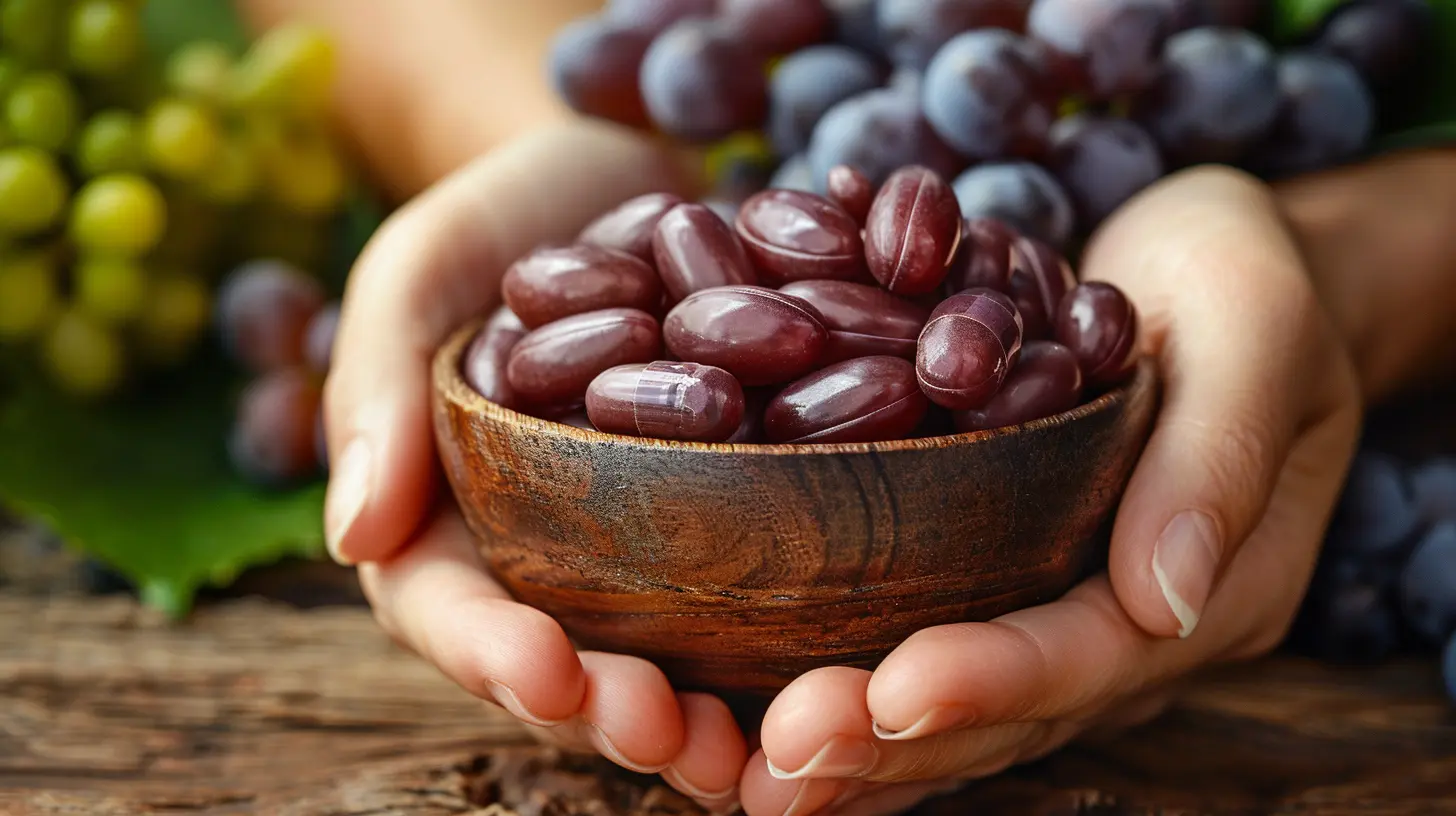
How Does Resveratrol Work Its Anti-Aging Magic?
Okay, so resveratrol isn’t actually magic, but it might be the next best thing. Here’s a simplified scoop on how it works:1. Activates “Longevity Genes” (Yes, That’s a Thing)
Resveratrol is thought to activate a group of proteins called sirtuins, especially SIRT1. These proteins play a critical role in cellular health, DNA repair, and—wait for it—longevity.Think of sirtuins as the body’s maintenance crew. When they’re activated, they tidy up damaged cells and boost energy efficiency. Basically, they Marie Kondo your cells.
2. Fights Off Free Radicals Like a Cellular Bodyguard
Ever heard of free radicals? They’re unstable molecules that cause oxidative stress, which sounds fancy but really just means they age you faster. Resveratrol steps in like a bouncer at a club and says, “Not today, buddy.”3. Reduces Inflammation (Your Body’s Silent Frenemy)
Chronic inflammation is a sneaky villain behind wrinkles, heart disease, and even brain fog. Resveratrol has anti-inflammatory properties that help keep that internal fire from becoming a full-blown wildfire.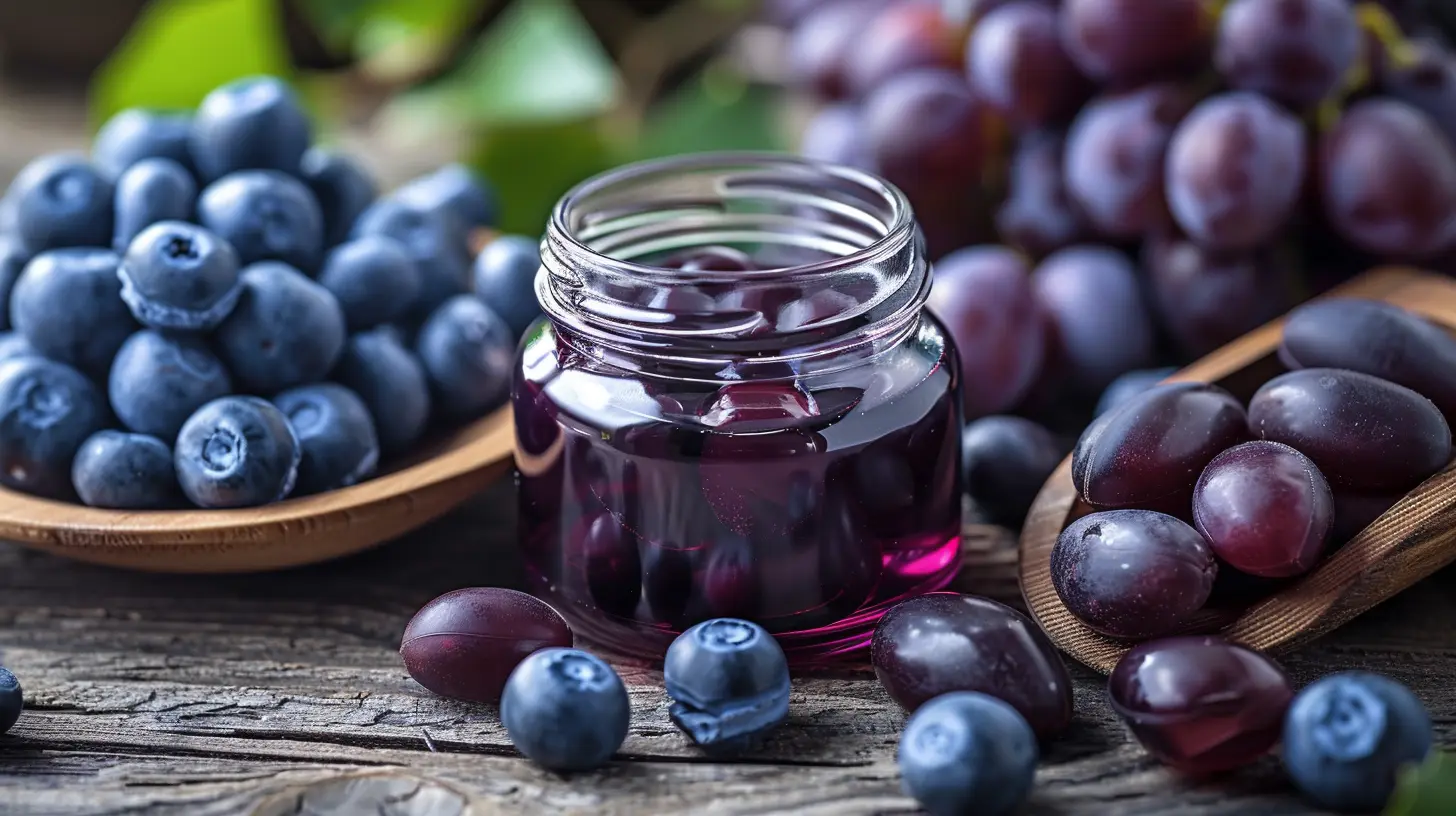
Benefits of Resveratrol Supplements for Anti-Aging
Alright, now let’s get to the juicy part (pun intended): How can resveratrol supplements help keep you feeling and maybe even looking younger?🧠 1. Brain Health That’s Sharp as a Tack
Nobody wants to forget where they left their keys—or worse, the names of their grandkids. Resveratrol is believed to protect brain cells and improve blood flow to the brain. It may even help guard against age-related conditions like dementia and Alzheimer’s.❤️ 2. A Heart That Beats Strong
Resveratrol supports cardiovascular health by relaxing blood vessels, reducing bad cholesterol, and fighting off inflammation. In short? It's giving your ticker some serious TLC.💪 3. Stronger Muscles and Better Metabolism
Muscle loss and slow metabolism—both classic symptoms of aging. Some studies have shown that resveratrol helps preserve muscle strength and boost mitochondrial function (a.k.a your body's energy factories).You know when you feel tired for no reason? Yeah, that could be your mitochondria throwing in the towel. Resveratrol helps pep them back up like a cellular cup of coffee.
🧬 4. DNA Protection and Cellular Longevity
Remember those sirtuins we talked about? When resveratrol activates them, your cells become more efficient at repairing DNA damage. That’s huge because DNA damage is one of the biggest culprits in aging.🧖♀️ 5. Possible Skin Benefits (Because Who Doesn’t Want A Glow-Up?)
While it’s still a developing area, some studies and skincare lines are incorporating resveratrol thanks to its antioxidant and anti-inflammatory powers. It may help reduce wrinkles, improve elasticity, and give your skin that "just-finished-a-hike" kind of glow.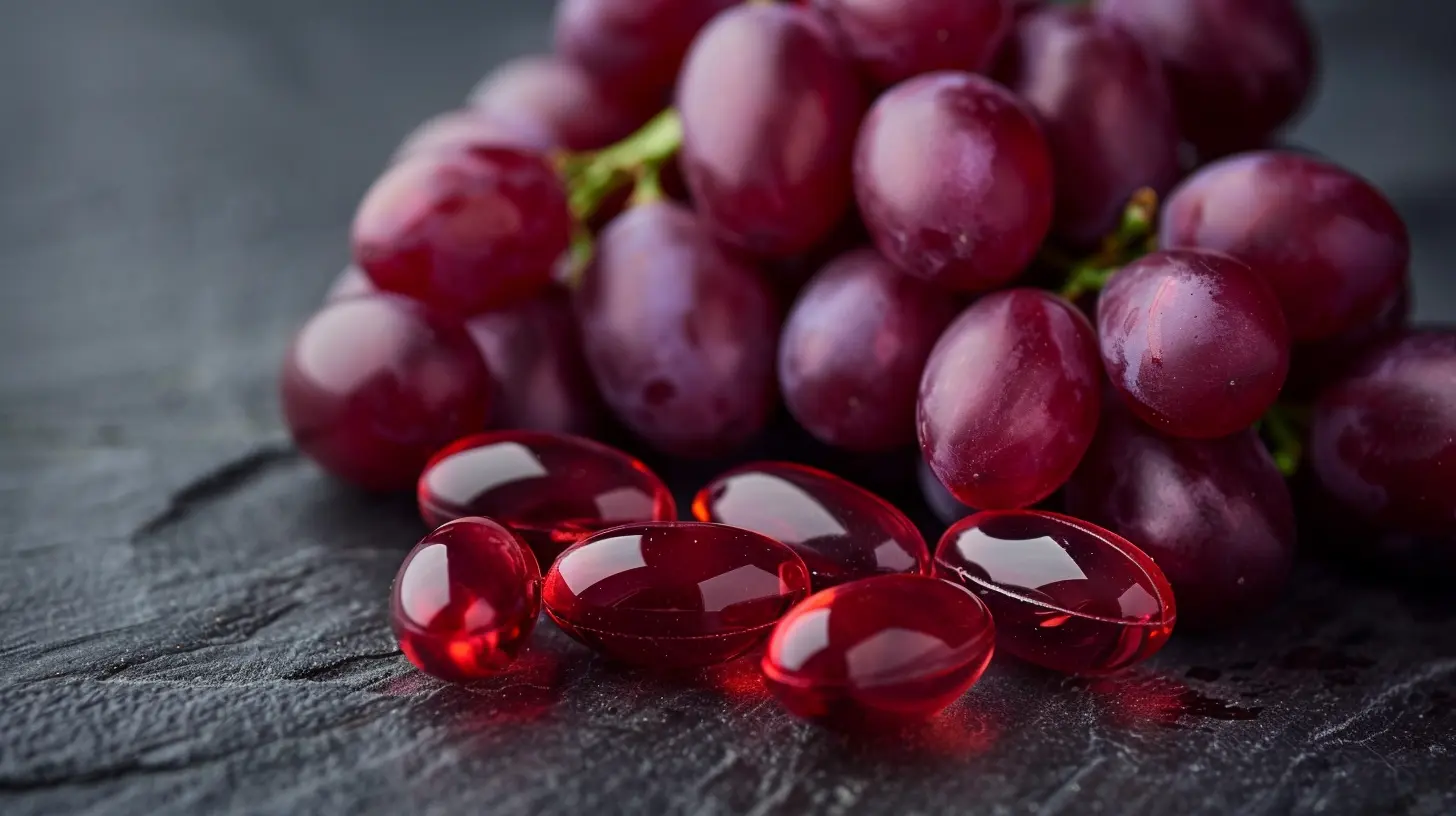
So, Should Everyone Start Taking Resveratrol Supplements?
You could drink a gallon of red wine a day (not recommended, by the way 🍷🚫), or you could take a resveratrol supplement and skip the hangover.But like anything health-related, it’s not a one-size-fits-all deal. While resveratrol supplements are generally considered safe, they're not a green light for everyone.
Let’s break it down:
Who Might Benefit the Most?
- People over 35 looking to support healthy aging- Those with family history of heart or neurodegenerative diseases
- Fitness enthusiasts wanting to maintain muscle and stamina
- Anyone looking to biohack their way to longevity
But Not So Fast—Who Should Be Cautious?
- If you're on blood thinners (resveratrol may amplify the effect)- Pregnant or breastfeeding? You'll want to skip it for now.
- Always, and I mean always, check with your doc before starting anything new.
Resveratrol From Food Vs. Supplements: What’s The Deal?
Great question! Resveratrol is naturally found in:- Red grapes
- Peanuts
- Blueberries
- Dark chocolate (oh yes!)
- Red wine (again, in moderation!)
But—and here’s the big but (not the fun kind)—the amount from food is pretty small. Supplements pack a much bigger punch, often around 100mg or more per capsule.
Food = Great for Maintenance
Supplements = Great for Targeted Benefits
Think of it like this: Eating grapes is like brushing your teeth daily… taking a supplement is like getting a deep clean at the dentist.What Should You Look For In A Good Resveratrol Supplement?
If you’re ready to jump on the resveratrol train, here’s your boarding pass. When choosing a supplement, keep your eyes peeled for:- Trans-resveratrol: This is the most bioavailable and active form
- Purity: Aim for 98% or higher
- Third-party tested: To keep things honest
- Synergistic ingredients: Like quercetin or piperine to boost absorption
And remember—quality over quantity. It’s your health we’re talking about, not bargain hunting.
Real Talk: What Does Science Say?
Now, I know what you’re thinking—“This all sounds great, but is it backed by science, or is it just another overhyped supplement?”Fair question.
Dozens of animal and in vitro studies have shown promising anti-aging effects of resveratrol—from extending lifespan in yeast and mice to improving brain health and cardiovascular function.
Human studies? Still catching up.
Some show improvements in insulin sensitivity, cognitive function, and inflammation markers, while others call for more research. But the general consensus is that resveratrol shows major promise—especially when it's part of a well-rounded lifestyle.
So, don’t ditch your veggies and think resveratrol alone will make you immortal. But as part of your big-picture health plan? It’s a rockstar.
Tips for Getting the Most Out of Resveratrol Supplements
Alright, if you’re gonna give this a go, make it count. Here’s how:- Take it with food (especially fat) for better absorption
- Time it right: Many take it in the morning for energy
- Stay consistent: Results build over time, not overnight
- Pair it with a healthy lifestyle: Think exercise, sleep, and less stress
Your supplement is not a magic bean—it’s more like a teammate in your wellness squad.
Wrapping It All Up (With a Youthful Bow)
So, what have we learned about the power of resveratrol supplements in anti-aging?They’re not a fountain of youth, but they might just be a gentle stream leading you toward a longer, healthier, and more energetic life. From protecting your heart and brain to giving your cells a superhero-level tune-up, resveratrol brings a lot to the table.
And let’s be real—aging gracefully is way cooler than pretending we can avoid it altogether. If a little plant compound helps us stay sharper, stronger, and more vibrant along the way? Count me in.
Ready to give it a try? Just remember: resveratrol is the cherry on top of your health sundae—not the whole thing.
Stay young at heart, friends.
all images in this post were generated using AI tools
Category:
SupplementsAuthor:

Eileen Wood
Discussion
rate this article
1 comments
Nyari Blevins
Thank you for this insightful article! I appreciate the information on resveratrol supplements and their potential benefits for anti-aging. It’s encouraging to learn about natural health options.
July 30, 2025 at 4:28 AM

Eileen Wood
Thank you for your kind words! I'm glad you found the information on resveratrol helpful and encouraging.
